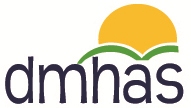Community Support Program (CSP)
Contact: Michael Reilly, 860-418-6642, michael.reilly@ct.gov
Dana Begin, 860-418-6863, dana.begin@ct.gov
Community Support Program (CSP) consists of mental health and substance use rehabilitation services and supports necessary to assist an individual in achieving and maintaining the highest degree of independent functioning. The service utilizes a team approach to provide intensive, rehabilitative community support, crisis intervention, individual, and group psycho-education and skill building for activities of daily living, peer support and self-management.
CSP includes a comprehensive array of rehabilitation services most of which are provided in non-office settings by a mobile staff. Services are focused on skill building with a goal of maximizing self-management skills and independence. Community-based treatment enables the team to become intimately familiar with the individual’s surroundings, strengths and challenges, and to assist the individual in learning skills applicable to his/her living environment. The team services and interventions are highly individualized and tailored to the needs and preferences of the individual.
CSP services focus on building and maintaining a therapeutic relationship with the individual while delivering rehabilitative, skill building interventions and activities, facilitating connections to the individual's community recovery supports, providing access to a Certified Peer Support Specialist who is specially trained and can provide effective self-help strategies and expertise through their lived experience, targeted case management (TCM) and emphasizing the individual's choices, goals and recovery path.
CSP includes a comprehensive array of rehabilitation services most of which are provided in non-office settings by a mobile staff. Services are focused on skill building with a goal of maximizing self-management skills and independence. Community-based treatment enables the team to become intimately familiar with the individual’s surroundings, strengths and challenges, and to assist the individual in learning skills applicable to his/her living environment. The team services and interventions are highly individualized and tailored to the needs and preferences of the individual.
CSP services focus on building and maintaining a therapeutic relationship with the individual while delivering rehabilitative, skill building interventions and activities, facilitating connections to the individual's community recovery supports, providing access to a Certified Peer Support Specialist who is specially trained and can provide effective self-help strategies and expertise through their lived experience, targeted case management (TCM) and emphasizing the individual's choices, goals and recovery path.
RECENT ADDITIONS/REVISIONS ARE SHADED
Meetings Schedule:
2020:
Contact Information:
Quick Reference Guides:
Fidelity Review Info:
-
CSP Fidelity Scale (PDF)
I. Background Materials:
II. CSP/RP Tools:
Brochures:
-
CSP Brochure (Powerpoint)
-
CSP Brochure - Spanish version (Powerpoint)
Functional Skills Assessment:
DMHAS FA:
-
Functional Skills Assessment (Word)
CASIG:
-
CASIG - Spanish version (Word)
-
CASIG Rating Summary (Excel)
-
CASIG Update Form (Word)
Integrated Summary Training/Tip Sheet:
Recovery Plan Info:
- Tips for Recognizing a Good Person-Centered Plan
- Tip Sheet: Goals in Person Centered Recovery Planning
- Tip Sheet: Creating SMART Objectives
- Tip Sheet: Intervention/Action Steps
-
Comprehensive Individual Treatment/Recovery Plan (Blank) (Word)
-
Skill Building Resources:
-
Curriculum List (PDF)
Wellness Recovery Groups:
Mutual Support Information:
Encounter Notes:
-
CSP Encounter Note Training (PDF) NEW!
-
Encounter Note Exercise (PDF)
-
Complete Encounter Notes (PDF)
-
Encounter Note (Blank) (Word)
-
Encounter Note (Sample)
Stages of Change:
Targeted Case Management (TCM):
Family Involvement Information:
Resource for Consumers and their Family Members:
Additional Information:
- Taking Care of Myself: A Guide for When I Leave the Hospital (English & Spanish)
- Person Centered Recovery Planning (PCRP) - Documents on Person Centered Recovery Planning (PCRP) including: Getting in the Driver's Seat of Your Treatment: Preparing for Your Plan - Spring 2010 (English & Spanish versions)
- Archives for Reference
Return to: Major Initiatives

